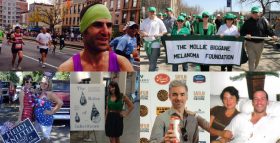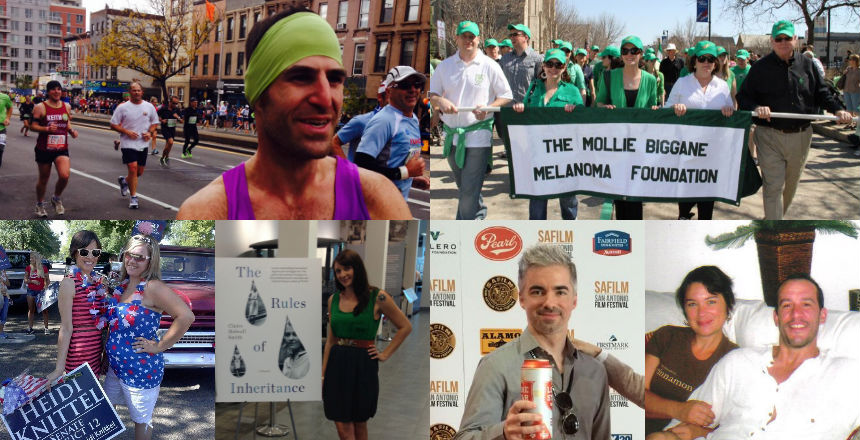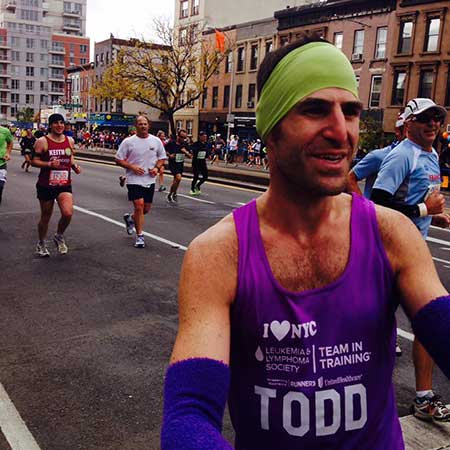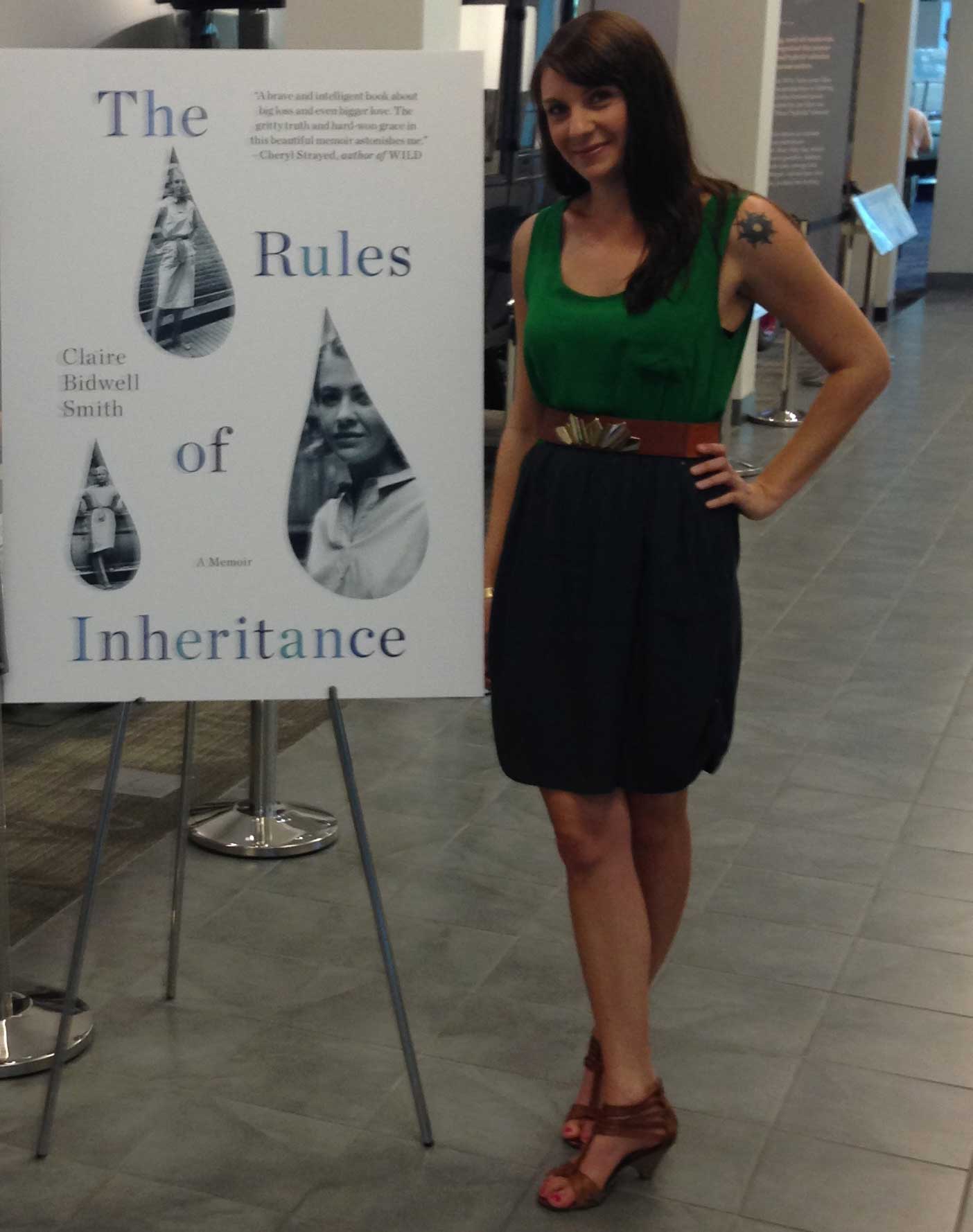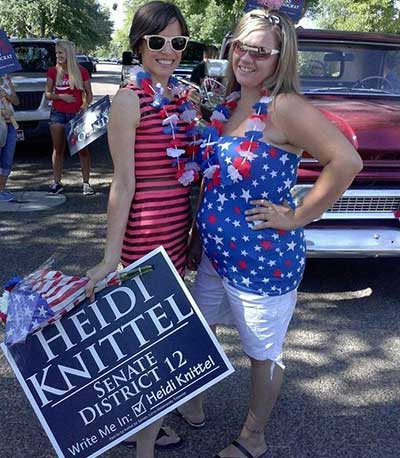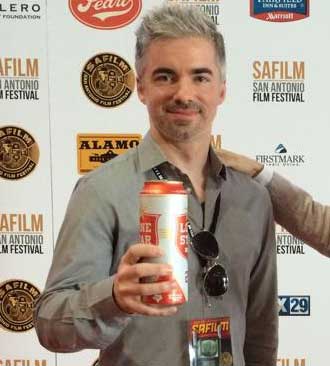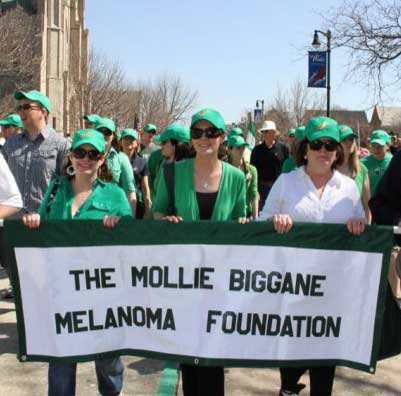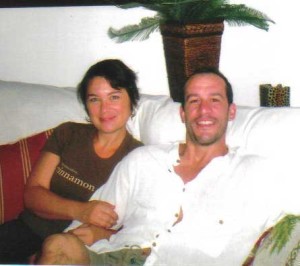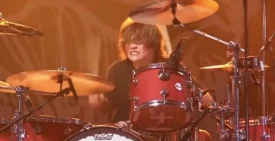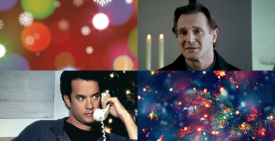Given the chance for a do-over, I would choose the life of my late husband over my published memoir and the TV series based on it that’s now in development. I loathe that I found my voice only through losing Alberto, and yet the idea of nothing positive coming from his loss would be far more dismal.
I did not immediately realize that the manuscript I started in 2009 a few weeks after his death would become my grief therapy and the gateway to a new career. I started writing because drunk-dialing the same 10 people ceased to be a comfort but I needed somewhere to go with my memories and regrets. In the five years since, I’ve discovered that grieving can be a freeing, creative act. Through writing, blogging and speaking about my grief, I’ve been able to absorb my loss. Alberto’s life and death have become part of my own narrative, life and purpose.
On this journey, I’ve encountered people whose grief has motivated them, instead of destroyed them. Hello, Team Modern Loss. Here are six of the many individuals who have given their grief profound expression and purpose. They’ve achieved goals — running for office, premiering a movie, starting a foundation — that are common to the bucket lists of many young Americans. And the common link between these people and us? Loss.
Related
TODD SUCHOTLIFF
Age: 33
City: New York City
Date of loss: Oct. 19, 2012
Milestone: Ran my first marathon.
Tell us about your milestone (and the loss that inspired it):
I ran the 2013 New York City Marathon, and I still re-live the incredible feeling as I approached mile markers where my friends and family waved posters and screamed my name.
But my mom was not in the crowd. She had lost her battle with cancer in October 2012, a little more than a year before. Prior to this, my life had been going well: I had recently gotten engaged and received a job promotion. When she passed away, it seemed like all the positive momentum came to a screeching halt.
While I had previously loved the way running cleared my head, now it became my only escape from the pain. I had never run a marathon before and it seemed daunting to train on my own, so I signed up with The Leukemia & Lymphoma Society Team in Training to train and raise money for the charity.
What I got was an experience that carried me through that first tough year without my mom. I had a goal to focus on and something to work toward. I was training with a group of people with whom I could talk about my loss. Suddenly, I had positive momentum back in my life.In the end, I didn’t just run the marathon…I crushed it. It was an amazing experience and I did it for my mom.
Did your loss feel different after crossing the finish line?
Yes. It was the first big milestone that I accomplished after she passed away. I realized that even without her, I can accomplish, succeed, be happy and live life to its fullest. I realized that this would be the best way I could honor my mom.
She was in my heart for each one of those 26.2 miles, and she would be there for everything else ahead. After crossing the finish line, I felt ready for whatever else life had in store for me. (I got married in July and I’m running my second marathon next month.)
Any words of wisdom for others who feel compelled to channel their grief in a similar way?
The best piece of advice I heard while training for the marathon had nothing to do with pacing or hydration; it was simply to remember why you are running in the first place.
CLAIRE BIDWELL SMITH
Age: 36
City: Santa Monica, Calif.
Date of losses: Mother on Jan. 24, 1997; father on Aug. 5, 2003
Milestone: Wrote the memoir “The Rules of Inheritance,” which has been published in 17 countries and is currently being adapted for the screen starring Jennifer Lawrence.
Tell us about your milestone (and the losses that inspired it):
I was 14 years old when both of my parents got cancer at the same time. My mother died when I was 18 and my father died when I was 25. Everything about their illnesses and subsequent deaths shaped who I am today. While the grief was unimaginably hard to experience, I finally realized that these losses gave me the very attributes I’m now grateful to have: bravery, compassion, presence and resilience.
I began writing this story after my father’s death, but it wasn’t until I was working as a grief counselor in hospice that I really felt driven to finish it. Grief can be a very isolating and lonely experience, and I’ve seen so much healing when people are able to share and relate their experiences of loss. That was my goal with publishing my book: to help just one person feel a little less alone in what they were going through.
Do your losses feel different since the book came out?
Yes and no. In some ways, it felt like I was symbolically closing the cover on a chapter of my life. But in other ways, it forced me to own those losses and how they sculpted me more than ever before. If anything, I’ve been incredibly touched and even healed by the vast number of people who have reached out with their own stories of loss and connection. None of us are ever as alone as we think we are.
Any words of wisdom for others who feel compelled to channel their grief in a similar way?
I encourage everyone who is grieving to write about it. It doesn’t necessarily have to be a memoir or a published book, but writing is such a healing practice. When you write down your regrets, your fears, your heartbreak, your sadness, it’s as though you are literally taking those things out of your body, and making space for new emotions. Writing is a profound way to better understand yourself and the world around you. Write, write, write. (Read Claire’s primer for Parentless Parents on Modern Loss.)
HEIDI KNITTEL
Age: 42
City: Nampa, Idaho
Date of loss: Dec. 21, 2013
Milestone: Entered the 2014 Idaho Senate race.
Tell us about your milestone (and the loss that inspired it):
Through a decade of social work, I’d been a vocal advocate for our most vulnerable citizens, and whenever I visited my dad, he would ask about my work, nod thoughtfully and say, ‘Good. Those people need you.’ He was a kind, conservative and Christian man of the New Testament ilk, in which folks would get into scrapes and Jesus would help them.
My dad had been dead five months when I decided to run for Idaho State Senate. I saw that our current, socially conservative Senator would be running his race unopposed, and I heard my dad’s voice: ‘Those people need you.’
Does your loss feel different since you entered the race?
Initially, it was painful to think my dad would neither know about nor feel proud of my decision. Over the past few months, my grief has morphed into a source of strength. And whenever I veer off-message, my dad’s ever-present spirit pulls me back toward the values he taught me.
Any words of wisdom for others who feel compelled to channel their grief in a similar way?
Grief is an amazing, amorphous ball of energy that — believe it or not — can take you to wild, wonderful new places.
RICHARD LOVEJOY
Age: 35
City: Brooklyn, N.Y.
Date of losses: Various
Milestone: Wrote and starred in the feature film, “The Widowers”.
Tell us about your milestone (and the losses that inspired it):
While “The Widowers” came into the world this year, the process truly began years ago, with my mother sobbing at the dinner table after her father had died.
I was only a kid, but I watched my mother transform from the person who took care of everything to someone unable to function. The adults around us utterly failed to understand her state of grief, which imprinted on me a need to bury my feelings. It was with that stoicism that I met the death of all my grandparents, as well as a pen pal and a classmate.
As I got older and took in movies and books about people going through loss, I became increasingly aware of how weirdly tone-deaf our culture is about such a universal experience. I thought a lot about my early losses, and began to feel ashamed for denying myself emotional reactions. I wanted to create something that pushed against all the one-dimensional representations of grief and the stoicism that society insists even children should have.
Ten years and numerous false starts, stumbles and mistakes later, “The Widowers” premiered at the San Antonio Film Festival and went on to sweep multiple awards at the Chain NYC Film Festival, including Best Narrative Feature. The film is on track to release at the end of this year.
Do you feel different about your losses since the film came out?
I do, but not for the expected reasons. While we were making the film, our director and our producer lost their daughter. Even though I wrote the script from my own feelings about grief, the film itself is absolutely informed and shaped by the very immediate loss my partners were going though.
Any words of wisdom for others who feel compelled to channel their grief in a similar way?
If you have even the slightest inclination to channel your grief, do it. In general, creation is incredibly hard even without feeling like you have to do justice to something huge and overwhelming. Just let yourself be raw, let yourself off the hook and let your instincts take you where they may.
CARA BIGGANE
Age: 32
City: New York City
Date of loss: Nov. 1, 2000
Milestone: Started the foundation, Mollie’s Fund, to raise awareness for melanoma prevention, provide information and services on skin cancer detection and support melanoma patients through education of the latest treatments.
Tell us about your milestone (and the loss that inspired it):
We lost Mollie to a very preventable disease [skin cancer], and we did not want any other family to go through what we did. Our goal is to educate others about melanoma through awareness and prevention practices like sunscreen and annual dermatologist checks.
Does your loss feel different since you started the foundation?
The pain doesn’t go away — although the ability to cope comes with time — but I know Mollie would be proud of the work we are doing in her name. Working with a team of individuals who are passionate about the cause has been an extraordinarily positive experience.
MEGAN DEVINE
Age: 44
City: Portland, Ore.
Dates of loss: July 12, 2009
Milestone: Launched Refuge in Grief, which is affectionately called ‘grief support that doesn’t suck.’
Tell us about your milestone (and the loss that inspired it):
I launched Refuge in Grief about three years after my partner drowned. Matt was strong, fit and healthy, so it’s still incomprehensible to me that I made it out of that river — our ‘home’ river — when he did not.
Even though I was a psychotherapist before Matt died, I quit my job that day at the river. I was in no state to help anyone. I did, however, continue writing as I’d always done, and found a handful of people in the young widowed community who sounded like me and had lives like mine before death changed things. With them, I found the acknowledgment and validation that was so lacking in the outside world.
Even just a few years ago, grief resources were abysmal. It was nearly impossible to find something that wasn’t full of platitudes, cheerleading or overly religious tones. This frustration is what led me to create my audio book, “When Everything is Not Okay.” My business grew up around that audio book, and it’s grown fast. Since the official launch in late 2013, I’ve written for many media outlets, and collaborated with several other grief support providers. I’ve spoken with hundreds of people about their grief and I now run an online, 30-day course called “Writing your Grief.” (See this Modern Loss Q&A for more.)
Does your loss feel different since incorporating your grief experience into your business?
There are days when I look at what I’m doing and think, ‘you know you have all this because Matt died. You know that, right?’ That’s the breath taking, smashing reality at the center of this. While I don’t miss the early days of flashbacks or retching on the floor, I do miss the intensity of grief. I miss feeling Matt so close to me.
That said, I reach into the loneliness from those first few years to fuel what I’m creating for other grieving people now. I never want to be so far from that early, visceral reality that I forget what it’s like. It’s important to me that I’m not seen as someone who has ‘completely recovered.’ I’m not recovered. I’ve just found a way to companion other people in pain, and I’m in a place where I’m strong enough to do it without my own pain engulfing me.
Any words of wisdom for others who feel compelled to channel their grief in a similar way?
Speak what’s true for you. There aren’t nearly enough people speaking the truth about grief, and about love. We need you. We need your words and your experience and your validation. Think about what you most needed at certain points in your own grief, and lean into those. Explore those spots. Start there.
Tré Miller Rodríguez is the author of “Splitting the Difference: A Heart-Shaped Memoir” and the popular Tumblr WhiteElephantInTheRoom.com. She is an award-winning copywriter whose essays have appeared in The New York Times, Marie Claire and on MindBodyGreen.com.

